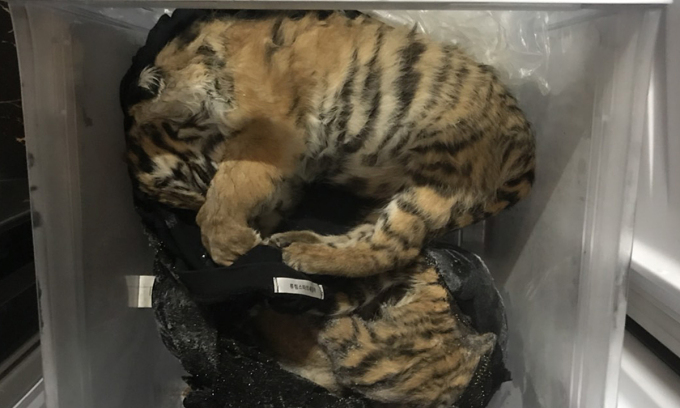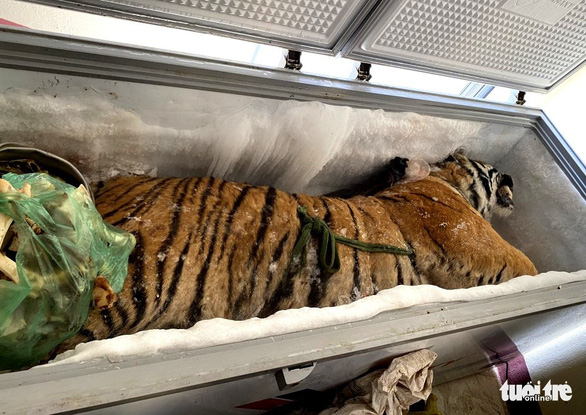
Ha Tinh Province, Central Vietnam – Animals frozen to be processed and sold, including seven tiger cubs, six pangolins, and the head of a serow, were discovered frozen inside the house of suspects in central Ha Tinh Province of Vietnam on Wednesday, December 20.
Two men, Tran Anh Tuan, 49, and Nguyen Tien Dung, 50, were arrested for “offenses against regulations on management and protection of endangered, rare animals,” where the animals found are protected under the law.
The authorities searched the suspects’ house from Dec. 20 to 21 and seized the animal cadavers, including the tiger cubs, weighing 5 to 10 kg.
According to the suspects, their motive for the crime was to process the animal cadavers and process them into medicinal alcohols, which they could sell for a fortune.
The IUCN Red List of Protected Species
Along with many protected species noted by the International Union for Conservation of Nature (IUCN), the Indochinese tigers, Panthera tigris, are included in the IUCN red list, including the Sunda pangolin, Manis javanica, and Mainland serow, Capricornis sumatraensis.

Black market value
At the current black market conditions, tiger bones in glue can cost US$6500 to US$13,000 per kg in Vietnam.
Patronage of Products of Illegal Wildlife Trade: The Motives
At present, locals of mountain districts are still known to patronize these products of illegal wildlife trade. Perceived purposes of wild animal products include traditional medicine, tools for superstitious practices, and cultural artifacts. Foreign customers of these traders may have other ulterior motives for buying besides the ones mentioned, including trophy hunting, luxury goods, status symbols, and even as long-term investments.
A similar case of Nguyen Van Chung in Huong Son District, Vietnam, was reported in September 2021 when the 42-year-old man claimed that a truck driver colluded with him to handle the freezer with 160-kg tiger carcass and 34 kg unidentified animal bones.

About the Author
Ron Culvera is the Director of the ASEAN Youth Organization Post (AYOPost). His passion for writing is rooted in his role in their campus journal from the early age of 9 until he graduated high school. Ever since then, he hasn’t stopped writing – he worked as an out-of-school freelance writer, continued on part-time to help him get through his college and post-graduate degree, and worked as an editor and reviewer in several international publications. From here on, he founded his start-up in science communications and digital journalism. When not writing, he plays chess, reads non-fiction, or watches documentaries.